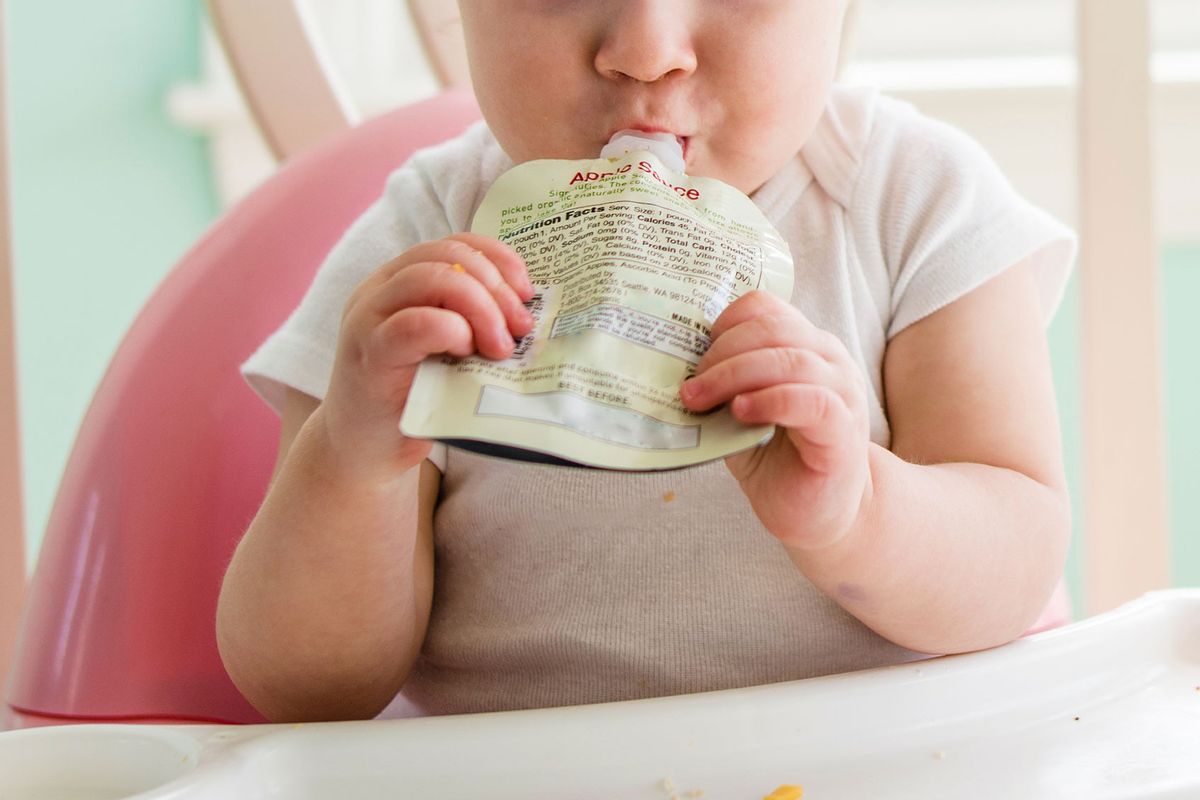Dollar Tree reportedly failed to remove various brands of lead-contaminated applesauce months after they were recalled, the Food and Drug Administration (FDA) wrote in a warning letter issued to Dollar Tree Inc. on June 11.
Back in November, the FDA issued warnings concerning the recall of several applesauce and cinnamon apple puree products, including WanaBana apple cinnamon fruit puree pouches, Schnucks-brand cinnamon-flavored applesauce pouches and variety pack, and Weis-brand cinnamon applesauce pouches. The products were sold nationally at select grocery stores and “Amazon, Dollar Tree, Family Dollar/Dollar Tree combination stores, and other online outlets,” the FDA specified. The agency added that at the time, WanaBana Apple Cinnamon Puree was still “on the shelves at several Dollar Tree stores in multiple states.” Now, months after the initial recall, public health officials nationwide said they’ve continued to see the recalled fruit puree pouches on Dollar Tree store shelves.
“On October 29, 2023, Wanabana USA initiated a voluntary recall of all WanaBana Apple Cinnamon Fruit Puree pouches. As a consignee of the recalled products, Dollar Tree Inc. (Dollar Tree or you) was notified in writing, on October 29, 2023, of Wanabana USA’s voluntary recall of Apple Cinnamon Fruit Puree pouches,” FDA wrote in its letter to Dollar Tree Inc. “Subsequent recall audit checks of your Dollar Tree and Family Dollar/Dollar Tree combination stores (collectively referred to as your “Dollar Tree stores”) revealed that you continued to offer the recalled WanaBana Apple Cinnamon Fruit Puree pouches on store shelves well after the recall was initiated, despite FDA’s numerous attempts to bring this serious issue to your attention.”
The FDA continued, saying it initiated a Recall Audit Check (RAC) at Dollar Tree stores to determine whether they received the recall notification and followed the necessary instructions. “Based on FDA’s review of the RAC data from state and local partners, the agency determined that, through December 19, 2023, the recall was ineffective at the retail level due to Dollar Tree’s failure to adequately remove recalled product from Dollar Tree store shelves,” per the letter. The FDA also listed a complete timeline of calls and emails between the agency and Dollar Tree Inc. Although the firm claimed they pulled the recalled product from store shelves and destroyed it, the FDA continued to receive reports of the product being available at Dollar Tree stores.
“Despite numerous attempts to bring this serious issue to your attention, your firm continued to offer adulterated Apple Cinnamon Fruit Puree pouches on store shelves, leaving children at risk of exposure to these adulterated products,” the FDA wrote.
Prior testing of a sample of recalled WanaBana cinnamon apple puree pouch collected from Dollar Tree contained a lead concentration of 2.18 parts per million (ppm). That is more than 200 times greater than the action level of 0.01 ppm proposed in the FDA’s draft guidance for fruit purees and similar products.
In response to the FDA’s letter, Dollar Tree said in an email to the Associated Press that the company is operating under new management and is taking steps to improve its process “for quickly and effectively executing product recalls.”
Want more great food writing and recipes? Subscribe to Salon Food's newsletter, The Bite.
Dollar Tree’s failure to remove recalled products from store shelves underscores a longstanding pattern of discount stores failing to protect consumer health. The annual report titled “Who's Minding the Store? A Report Card on Retailer Actions to Eliminate Toxic Chemicals” evaluates and ranks 50 of the largest retailers in North America based on their usage of harmful chemicals and plastics in their products. In 2021, the California-based 99 Cents Only Stores received a failing grade for the third year in a row, while Dollar Tree and Dollar General improved their below-average rankings. As of recently, 99 Cents Only Stores once again received a failing grade of “F.” Dollar Tree earned a “C+” grade while Dollar General received a “C-.”
As explained by Yvette Cabrera for Grist.org, many dollar stores are predominantly located in low-income areas and communities of color where residents “are disproportionately exposed to chemical hazards because of their proximity to hazardous industrial facilities that produce toxic chemicals.” Such chemicals are also used to make household products, which are then sold back to these same communities by dollar stores.
In 2015, the Campaign for Healthier Solutions — a group of over 100 health, community and environmental justice organizations nationwide — found over 81% of dollar store products (like household items, school supplies, toys and accesories) contained at least one hazardous chemical above levels of concern. The chemicals include phthalates, polyvinyl chloride plastic (PVC or vinyl), and lead which can cause cancer, birth defects and other serious health and developmental issues.



Shares